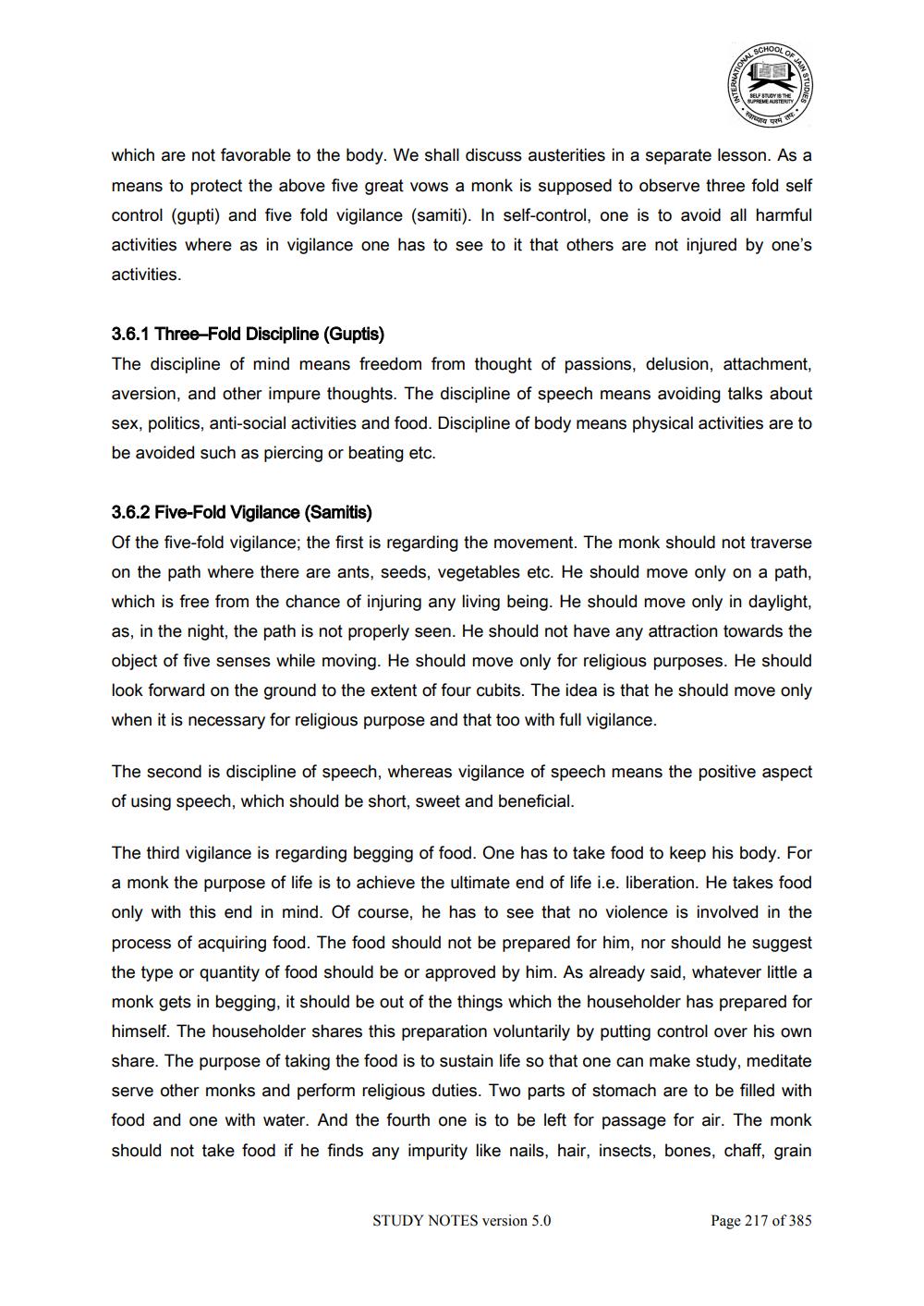________________
which are not favorable to the body. We shall discuss austerities in a separate lesson. As a means to protect the above five great vows a monk is supposed to observe three fold self control (gupti) and five fold vigilance (samiti). In self-control, one is to avoid all harmful activities where as in vigilance one has to see to it that others are not injured by one's activities.
3.6.1 Three-Fold Discipline (Guptis) The discipline of mind means freedom from thought of passions, delusion, attachment, aversion, and other impure thoughts. The discipline of speech means avoiding talks about sex, politics, anti-social activities and food. Discipline of body means physical activities are to be avoided such as piercing or beating etc.
3.6.2 Five-Fold Vigilance (Samitis) Of the five-fold vigilance; the first is regarding the movement. The monk should not traverse on the path where there are ants, seeds, vegetables etc. He should move only on a path, which is free from the chance of injuring any living being. He should move only in daylight, as, in the night, the path is not properly seen. He should not have any attraction towards the object of five senses while moving. He should move only for religious purposes. He should look forward on the ground to the extent of four cubits. The idea is that he should move only when it is necessary for religious purpose and that too with full vigilance.
The second is discipline of speech, whereas vigilance of speech means the positive aspect of using speech, which should be short, sweet and beneficial.
The third vigilance is regarding begging of food. One has to take food to keep his body. For a monk the purpose of life is to achieve the ultimate end of life i.e. liberation. He takes food only with this end in mind. Of course, he has to see that no violence is involved in the process of acquiring food. The food should not be prepared for him, nor should he suggest the type or quantity of food should be or approved by him. As already said, whatever little a monk gets in begging, it should be out of the things which the householder has prepared for himself. The householder shares this preparation voluntarily by putting control over his own share. The purpose of taking the food is to sustain life so that one can make study, meditate serve other monks and perform religious duties. Two parts of stomach are to be filled with food and one with water. And the fourth one is to be left for passage for air. The monk should not take food if he finds any impurity like nails, hair, insects, bones, chaff, grain
STUDY NOTES version 5.0
Page 217 of 385




